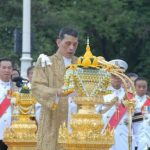After Thai King Bhumibol’s death, succession may be delayed

On October 13, news broke that Thailand’s 88-year-old king, Bhumibol Adulyadej, died after suffering complications from hemiodialysis treatment at Bangkok’s Siriraj hospital. King Bhumibol, the world’s longest reigning monarch, was revered as a demi-god and, for most Thai citizens, was the only monarch they had ever known. With Bhumibol’s health in question for years, Thai politics has long considered the issue of succession. As I discussed on October 9, the appointed successor, Crown Prince Maha Vajiralongkorn, is widely unpopular in Thailand, particularly with monarchists. The crown prince’s overseas antics, combined with his perceived soft spot for Thailand’s previous civilian government, leave him a polarizing figure. However, despite all this, Thai Prime Minister and junta chief Prayut Chan-o-cha, who led the country’s last coup in 2014 to depose the democratically elected government of Yingluck Shinawatra, has strongly suggested that the crown prince would succeed his father, in line with King Bhumibol’s wishes, he had chosen Vajiralongkorn as his heir in 1972. Since the coup, the military-led government has sought to “burnish the reputation of the crown prince,” as the New York Times put it last year.

